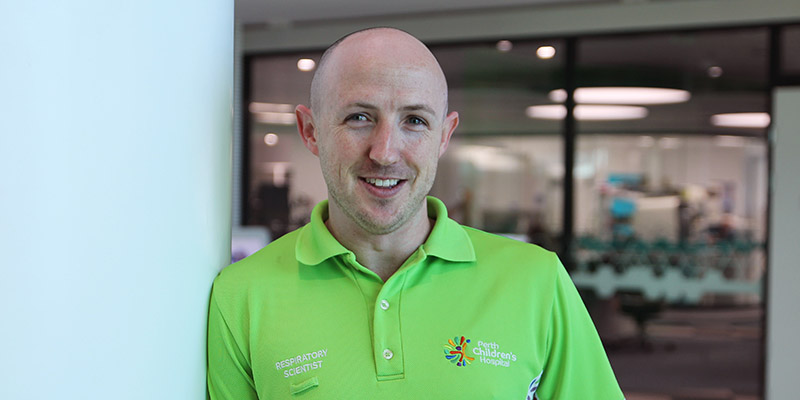
The Kids Research Institute Australia PhD candidate and Perth Children's Hospital senior respiratory scientist Chris O’Dea
Running around a park or joining in sports carnivals is a rite of passage for most children, but for those born prematurely it has been a question of safety.
Parents of children born prematurely have expressed concerns about their child’s lung health when they exercise, with symptoms such as breathlessness.
It is known, thanks to Wal-yan Respiratory Research Centre research, that preterm children have impaired lung function and altered lung structure. Until now, however, there have been conflicting reports on how preterm birth impacts aerobic exercise in childhood.
In a recent paper published in the European Journal of Applied Physiology, Perth researchers found that children who were born prematurely do have the same capacity to exercise as their peers who were born full term.
The Kids Research Institute Australia PhD candidate Chris O’Dea, who is a member of the Wal-yan Respiratory Research Centre and is also a senior respiratory scientist at Perth Children’s Hospital, wanted to ease parents’ concerns about the effect exercise was having on their children who were born prematurely.
WALHIP cohort participants aged 9 to 12 were put through a fitness test, similar to those professional athletes do, to ascertain how their lungs performed during exercise.
Mr O’Dea found the severity of structural lung disease from being born prematurely was not associated with exercise outcomes.
“We found children who were born prematurely have the same capacity to exercise as their term peers, and therefore exercise is not harmful to preterm children,”
“They have as much capacity as their term peers but they do breathe differently – more rapid and shallow.
“This finding has been reassuring to parents of preterm children, who told us they were concerned about their child’s breathlessness when exercising.
“The research shows there are no adverse effects, and their kids are ok. It’s ok for preterm kids to get puffed and it won’t hurt them.”
Chris O’Dea is a member of the Wal-yan Respiratory Research Centre, which is made possible thanks to a Powerhouse Partnership between The Kids Research Institute Australia, Perth Children’s Hospital Foundation and Perth Children’s Hospital.
